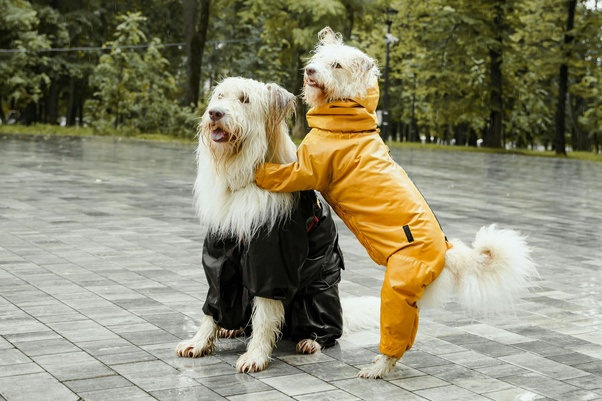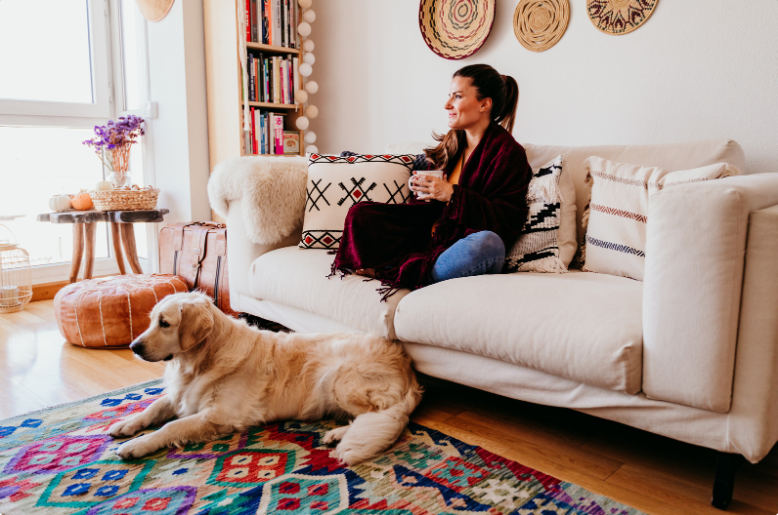Curious Online User Wants To Know If It's Bad For Dogs To Not Have Fellow Canine As Companion
Adding a furry friend to keep your doggo company might seem like a fantastic plan, but it doesn't always go smoothly. It's surprising, considering how friendly dogs usually are, that they can sometimes clash with other dogs.
Just like people, dogs can be choosy about who they want to share their space with. If we have preferences when it comes to roommates or friends, it's the same for our canine companions too.
Even if your dog loves hanging out with humans, it doesn't guarantee they'll be best buds with other dogs. Studies show that dogs who grew up separately from other dogs might not be as comfortable around them compared to those who had plenty of doggy pals during puppyhood.
So, if your dog shows signs of aggression or nervousness around other dogs, it might be worth rethinking whether getting another dog as a buddy is the best idea for them.
Your pet might seem perfectly fine mingling with other dogs at the dog park. Yet, if that same dog visits your home and starts playing with your pet's toys, it could become upset.
When you see this happen, it's a telltale sign that you shouldn't get another dog. Let's take a look at others' opinions over at Quora.
Users answered this question:
Is it detrimental for a dog to live without another dog's companionship?
Armenian Gamprs owner shares what it's like having more than one of the breed.
The kind I have, Armenian Gamprs, dislike other dogs intensely, and if the other unknown dog is in their territory, it had better be a fast runner because their number one mission in life, bar none, is to drive away or kill any foreign invader.
That's what they are bred to do: get rid of unknown canids. That's their purpose.
They have a pack mentality.
All mine were raised together, but there are still fierce rivalries between males and males, and females and females. I have to keep subgroups apart.
A puppy can be carefully introduced over time. An adult dog is SOL, though.

It all boils down to the dog's preferences.
Whether it is detrimental for a dog to live without another dog's companionship depends on the individual dog's temperament, socialization, and the specific circumstances of its living environment. Dogs are social animals, and many breeds have been domesticated to live alongside humans and other dogs.
However, not all dogs require constant canine companionship, and individual preferences can vary.

You can always ask the experts if your dog would benefit from having a canine companion.
Factors influencing the impact of solitary living on a dog include:
1. Breed and Personality: Some breeds are more independent and less social, while others thrive on social interaction. Additionally, individual personality plays a significant role; some dogs are perfectly content being the sole pet in a household.
2. Socialization: Dogs that have been well-socialized from a young age and exposed to various environments, people, and other animals may adapt better to solitary living.
3. Owner Interaction: The amount of time and attention the owner can provide to the dog is crucial. Dogs that receive sufficient mental stimulation, exercise, and social interaction with their human family may not necessarily need another dog for companionship.
4. Age and Health: Older dogs or those with health issues may not have the same energy or desire for constant play and interaction as younger, healthier dogs.
5. Previous Experiences: Dogs with a history of positive interactions with other dogs may enjoy the company of their canine counterparts. Conversely, a dog that has had negative experiences may prefer a more solitary lifestyle.
While many dogs benefit from having a companion, it's not universally detrimental for a dog to live without another dog. The key is to ensure that the dog's physical and emotional needs are met through appropriate human interaction, mental stimulation, and physical exercise.
Regular veterinary check-ups can also help monitor a dog's overall well-being in a single-pet household. If in doubt, consulting with a veterinarian or professional dog behaviorist can provide tailored advice based on the specific dog's needs and circumstances.

Family members = Part of the pack
No, because although they are pack animals, they look at you and your family as part of the pack.

As with every choice, there will always be pros and cons.
Living without another dog's companionship can have varying effects on a dog depending on several factors, including the dog's breed, temperament, age, and individual personality. Let's delve into the potential pros and cons to provide a comprehensive understanding.
Pros of Living Without Another Dog's Companionship:
Individual Attention: A solitary dog may receive more individual attention from their owner, which can strengthen the bond between them and promote obedience and training.
Reduced Competition: Without another dog in the household, there is less competition for resources such as food, toys, and attention, leading to potentially lower stress levels for the solitary dog.
Tailored Environment: Owners can tailor the environment to suit the needs and preferences of their single dog without having to consider the dynamics and compatibility with another dog.
Cons of Living Without Another Dog's Companionship:
Socialization Needs: Dogs are inherently social animals, and companionship with other dogs fulfills their need for social interaction. Without another dog, they may experience loneliness and boredom, which can lead to behavioral issues like excessive barking or destructive chewing.
Lack of Playmates: Dogs often enjoy playing and exercising with other dogs, engaging in activities like chasing, wrestling, and fetching. Without a companion, the solitary dog may miss out on these opportunities for physical and mental stimulation.
Emotional Well-being: Companionship with other dogs can provide emotional support and comfort, particularly during times of stress or anxiety. A solitary dog may lack this source of emotional reassurance, leading to feelings of isolation and insecurity.
Mitigating Factors:
Owner Interaction: Owners play a crucial role in mitigating the effects of solitary living by providing ample interaction, exercise, and mental stimulation for their dog. Regular walks, play sessions, and training activities can help fulfill the dog's social and cognitive needs.
Enrichment Activities: Enrichment activities such as puzzle toys, interactive games, and training exercises can help keep a solitary dog mentally engaged and prevent boredom.
Doggy Daycare or Playdates: Occasionally exposing the solitary dog to other dogs through activities like doggy daycare or playdates with friends' dogs can provide opportunities for socialization and companionship.
Consider Individual Needs: Some dogs may thrive in a solitary environment, while others may struggle with loneliness. It's essential for owners to observe their dog's behavior and temperament to determine if they would benefit from the companionship of another dog.
Conclusion:
While living without another dog's companionship can have both positive and negative implications, the key lies in understanding and catering to the individual needs of the dog. Providing ample social interaction, mental stimulation, and emotional support can help mitigate the potential drawbacks of solitary living, ensuring a happy and fulfilling life for the canine companion.

A dog can survive and be happy even if it doesn't have a fellow dog companion.
No. Dogs aren't pack animals and are more dyadic in personality.
They enjoy the company of themselves just fine and one or two other dogs if need be. My dog lives without another dog in my home, and I think he's great with that.
All the love and attention goes to him.

Whether or not you should get another dog as a companion for your current one also depends on your living situation. You need to ensure that you have the time, resources, and energy to take care of another dog properly.
You definitely don't want to get another dog only to find yourself surrendering it to the shelter in the end.



